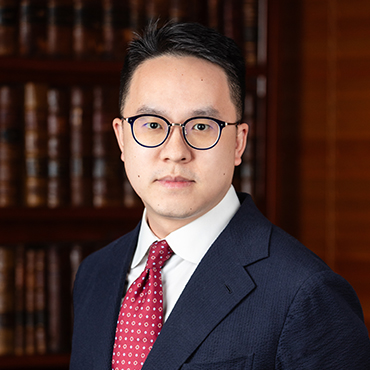Amjad Ul Mahmood v Profit Hill International Holdings [2023] 3 HKLRD 109, [2023] HKDC 715 (Brian Tsui)
Brian Tsui represented the 2nd Defendant in Amjad Ul Mahmood v Profit Hill International Holdings [2023] 3 HKLRD 109, [2023] HKDC 715.
P, an employee of D1, suffered injuries at work. P commenced employees’ compensation (EC) proceedings against D1 and a common law personal injuries action against D1 and D2. The EC proceedings were settled when D1 paid a sum of compensation to P which was exclusive of costs. In the personal injuries action, the Court found that D2 was wholly liable but as the amount of damages P would have received in that action was less than the amount of EC compensation D1 paid to P, the claim against D2 was dismissed. The Court found that D2 was liable to contribute and indemnify D1 under s. 25 (1)(b) of the Employees’ Compensation Ordinance (Cap. 282 ) (the ECO) for the compensation D1 paid to P with costs. The proviso in s.25(1)(b) of the ECO states that the amount recoverable by the employer under s.25(1)(b) shall not exceed the amount of damages which in the opinion of the court would have been awarded to the employee but for the provisions of the ECO. D2 argued that the legal costs of the EC proceedings should also be subject to the cap of the amount of damages awarded to P, such that D2 was not liable to contribute to or indemnify D1 for P and D1’s legal costs in the EC proceedings on top of the amount of damages awarded to P.
Held, ordering D2 to pay to D1 the costs of P and D1 in the EC proceedings, in addition to EC compensation as capped under s.25(1)(b) of the ECO. The legal costs of the EC proceedings were not included and not capped by the amount of common law damages under the proviso in s.25(1)(b) of ECO in the calculation of the amount of contribution and indemnity paid by the tortfeasor to the employer. Such interpretation was consistent with other provisions of the ECO, particularly s.25(1)(a) under which legal costs of EC proceedings were not deducted from the amount of common law damages received by the employee. The purpose of s.25(1)(a) was to avoid an employee getting more than the damages he could get under common law, while the purpose of s.25(1)(b) was to ensure that the employer recovered what he was obliged to pay under the ECO from the tortfeasor. It could not be the legislative intent to include legal costs in the calculation of the amount an employer could recover from a tortfeasor under s.25(1)(b), while excluding legal costs in assessing common law damages payable to an employee under s.25(1)(a). Further, unlike EC compensation, liability to pay legal costs was not a statutory duty under the ECO. The court granted costs as a matter of discretion, not under the terms of ECO (Wah Kwong Construction Material v Wong Man Yip [1995] 1 HKLR 85, Yardway Motors Ltd v Tam Siu Lun [2005] 2 HKLRD 118 considered; Kan Che Sing v Hop On Management Co Ltd [2020] HKDC 292 not followed). (See paras.19-34.)
[The above is excerpted from the headnote to the report in HKLRD.]


